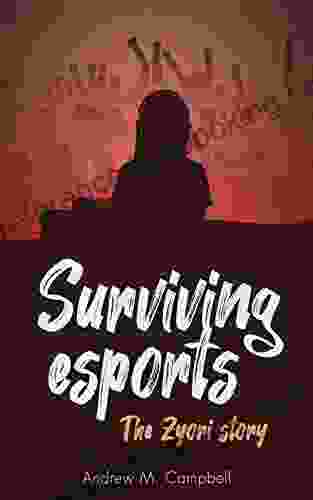Antifascism and Sociology: Gino Germani, 1911-1979

Gino Germani was an Italian-born sociologist who played a significant role in the development of antifascism in Italy and the United States. His work on social movements, social stratification, and political sociology has had a lasting impact on the field of sociology.
4.5 out of 5
| Language | : | English |
| File size | : | 1417 KB |
| Text-to-Speech | : | Enabled |
| Screen Reader | : | Supported |
| Enhanced typesetting | : | Enabled |
| Print length | : | 240 pages |
Germani was born in Rome in 1911. He studied sociology at the University of Rome, where he came into contact with the work of Antonio Gramsci, a leading Italian Marxist thinker. Gramsci's work had a profound influence on Germani, and it shaped his own thinking on social movements and political change.
In 1934, Germani left Italy to escape the fascist dictatorship of Benito Mussolini. He went to the United States, where he studied at Harvard University. At Harvard, Germani worked with Talcott Parsons, one of the leading sociologists of the time. Parsons' work on social stratification and social change had a major influence on Germani's own research.
In 1946, Germani returned to Italy. He became a professor of sociology at the University of Rome, where he helped to rebuild the Italian sociological community after the war. Germani's work on social movements and political sociology played a significant role in the development of Italian antifascism.
In 1967, Germani moved to the United States, where he became a professor of sociology at Harvard University. He continued to work on social movements and political sociology, and he also became interested in the relationship between social inequality and political violence.
Germani died in 1979. He was one of the most influential sociologists of the twentieth century. His work on social movements, social stratification, and political sociology has had a lasting impact on the field of sociology.
Germani's Contributions to Antifascism
Germani was a lifelong antifascist. He believed that fascism was a threat to democracy and human rights. He also believed that sociologists had a responsibility to fight against fascism.
Germani's work on social movements played a significant role in the development of antifascism. He argued that social movements were a powerful force for social change. He also argued that social movements could be used to resist fascism.
Germani's work on social stratification also contributed to the fight against fascism. He argued that social inequality was a major cause of fascism. He also argued that social inequality could be reduced through social reforms.
Germani's work on political sociology also contributed to the fight against fascism. He argued that fascism was a form of political authoritarianism. He also argued that political authoritarianism could be resisted through democratic reforms.
Germani's work on antifascism is still relevant today. Fascism is still a threat to democracy and human rights. Sociologists have a responsibility to fight against fascism, and Germani's work provides a valuable guide for how to do so.
Germani's Legacy
Germani was a brilliant sociologist who made significant contributions to the field of sociology. His work on social movements, social stratification, and political sociology has had a lasting impact on the field. He was also a lifelong antifascist who used his work to fight against fascism.
Germani's legacy is one of social justice and human rights. He believed that sociology could be used to make the world a better place, and he dedicated his life to fighting against fascism and other forms of oppression.
Germani's work is still relevant today. Fascism is still a threat to democracy and human rights. Sociologists have a responsibility to fight against fascism, and Germani's work provides a valuable guide for how to do so.
4.5 out of 5
| Language | : | English |
| File size | : | 1417 KB |
| Text-to-Speech | : | Enabled |
| Screen Reader | : | Supported |
| Enhanced typesetting | : | Enabled |
| Print length | : | 240 pages |
Do you want to contribute by writing guest posts on this blog?
Please contact us and send us a resume of previous articles that you have written.
 Book
Book Novel
Novel Page
Page Chapter
Chapter Text
Text Story
Story Genre
Genre Reader
Reader Library
Library Paperback
Paperback E-book
E-book Magazine
Magazine Newspaper
Newspaper Paragraph
Paragraph Sentence
Sentence Bookmark
Bookmark Shelf
Shelf Glossary
Glossary Bibliography
Bibliography Foreword
Foreword Preface
Preface Synopsis
Synopsis Annotation
Annotation Footnote
Footnote Manuscript
Manuscript Scroll
Scroll Codex
Codex Tome
Tome Bestseller
Bestseller Classics
Classics Library card
Library card Narrative
Narrative Biography
Biography Autobiography
Autobiography Memoir
Memoir Reference
Reference Encyclopedia
Encyclopedia Amy Bleuel
Amy Bleuel Andy Kirkpatrick
Andy Kirkpatrick Angelina J Steffort
Angelina J Steffort Andreas Deja
Andreas Deja Andrew Benfield
Andrew Benfield Allan House
Allan House Amy Krouse Rosenthal
Amy Krouse Rosenthal Alexis Paige
Alexis Paige Andrew Pickering
Andrew Pickering Amy Guglielmo
Amy Guglielmo Angelo Tropea
Angelo Tropea Andrew Rowe
Andrew Rowe Amelia Pang
Amelia Pang Andy Keen
Andy Keen Anat Baniel
Anat Baniel Alex Wolf
Alex Wolf Amy Wenzel
Amy Wenzel Andrew Jones
Andrew Jones Andy Clark
Andy Clark Alexandre Roger
Alexandre Roger
Light bulbAdvertise smarter! Our strategic ad space ensures maximum exposure. Reserve your spot today!

 Craig CarterEmbark on an Extraordinary eSports Journey with "Surviving eSports: The Zyori...
Craig CarterEmbark on an Extraordinary eSports Journey with "Surviving eSports: The Zyori...
 Jack ButlerCelebrate the Miracle of Birth with "Our Births Our Stories": An Empowering...
Jack ButlerCelebrate the Miracle of Birth with "Our Births Our Stories": An Empowering...
 Jared Nelson50 Tips, Techniques, and Step-by-Step Exercises for Creating Colorful Fluid...
Jared Nelson50 Tips, Techniques, and Step-by-Step Exercises for Creating Colorful Fluid...
 Dakota PowellReef Fishes of the Coral Triangle: A Visual Extravaganza of Underwater Beauty
Dakota PowellReef Fishes of the Coral Triangle: A Visual Extravaganza of Underwater Beauty Herbert CoxFollow ·9.6k
Herbert CoxFollow ·9.6k Gavin MitchellFollow ·4.1k
Gavin MitchellFollow ·4.1k Lucas ReedFollow ·5.8k
Lucas ReedFollow ·5.8k Noah BlairFollow ·19k
Noah BlairFollow ·19k Hassan CoxFollow ·15.1k
Hassan CoxFollow ·15.1k Harry HayesFollow ·18.8k
Harry HayesFollow ·18.8k Osamu DazaiFollow ·7.8k
Osamu DazaiFollow ·7.8k Joel MitchellFollow ·18.6k
Joel MitchellFollow ·18.6k

 Julio Cortázar
Julio CortázarIf You Don't Do Politics, Politics Will Do You
Uncover the Hidden Power in Everyday Life In...

 Ivan Turner
Ivan TurnerThe Edge of Physics: Unraveling the Extraordinary...
What is the nature of...

 Diego Blair
Diego BlairAn Intuitive Guide For Using And Interpreting Linear...
Linear models...

 Oscar Wilde
Oscar WildeThrough Two Doors At Once: Unveiling the Enigmatic World...
Prepare to delve into the captivating realm of...

 Darrell Powell
Darrell PowellWomen Athletes in History: An Inspiring Gift for Teenage...
Unveiling the Extraordinary Stories of Female...
4.5 out of 5
| Language | : | English |
| File size | : | 1417 KB |
| Text-to-Speech | : | Enabled |
| Screen Reader | : | Supported |
| Enhanced typesetting | : | Enabled |
| Print length | : | 240 pages |






